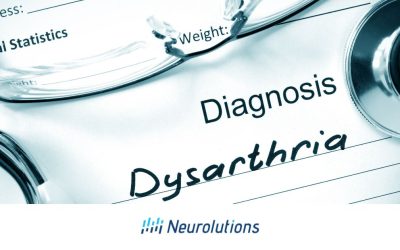What Is Confabulation After A Stroke?
Confabulation is a cognitive phenomenon observed in some stroke survivors and individuals with neurological conditions. It involves the fabrication of seemingly remembered memories, perceptions, or narratives, to fill in gaps in their memory or to provide an explanation for certain events.
Confabulation is the brain’s way of coping with memory loss and impaired cognitive processes caused by stroke damage. It is important to note that stroke survivors who confabulate are not deliberately lying or trying to mislead. They are genuinely unaware that their memories are not real. In some cases, this problem can disappear over time (1).
These false memories can take a number of different forms. The most common types of false memories include (2):
- Inserting memories from one event into another time or place
- Exaggerations of actual events
- Recalling an older event but believing it took place recently
- Filling in memory gaps with fabricated details
- Creating a new memory from an event that never occurred
Confabulation can manifest in two different ways: verbal or behavioral (2). Both types of confabulation are typically seen in individuals with neurological or psychological conditions that affect memory and cognitive processes and will be described in detail in this informational article.
What is Verbal Confabulation?
Verbal confabulation occurs when the person makes a statement about false memories and confidently shares false or fabricated memories. These memories can be vivid and detailed, and the person expressing them genuinely believes that they are recounting real events. For instance, the person may confidently talk about a trip to the grocery store, despite never having actually left the house. This type of confabulation can be puzzling for others, as the person may sound convincing and adamant about their false statements.
What is Behavioral Confabulation?
Behavioral confabulation refers to behavioral changes the person makes in response to their false memory. For example, baking a cake for someone whose birthday was three months ago, the person might genuinely believe that it is the individual’s birthday and may engage in celebratory behaviors, such as preparing the cake and presenting it as a gift. This behavior is driven by their false memory, which leads them to act on the incorrect belief that the birthday is happening at that moment.
Is the Individual Intentionally Trying to Deceive and/or Lie?
No. While many people believe confabulation is another way of lying, confabulation is known as “honest lying.” People who confabulate their stories truly believe that they are remembering things correctly and not lying. They are not making a conscious or intentional attempt to deceive. Rather, they are confident in the truth of their memories even when confronted with contradictory evidence.
Confabulation can also occur in people without brain injury or stroke. Most of us have created false memories at some point in our life, which is one of the ways that the brain copes with normal memory gaps (2).
What’s The Difference Between Spontaneous Vs Provoked Confabulation?
Spontaneous confabulation is less common than provoked confabulation and refers to the phenomenon where an individual spontaneously generates false or fabricated stories without any apparent external prompting or specific question.
On the other hand, provoked confabulation is the most common type of confabulation (4), and occurs when someone creates false stories during conversation in response to a specific question or cue. In this case, the false memories are triggered by external stimuli, such as a question about a past event or an attempt to recall specific details.
What Can Cause Confabulation?
As mentioned earlier, confabulation can occur due to underlying neurological and/or psychological conditions. Stroke, traumatic brain injury (TBI), brain tumors, and neurodegenerative diseases (e.g Alzheimer’s Disease, Wernicke-Korsakoff’s Syndrome, Schizophrenia) can lead to confabulation). (3)
The increased risk of confabulation can occur due to damage to the basal forebrain. The basal forebrain (BF) is a part of the brain that is responsible for receiving and processing sensory information such as the following: thinking, perceiving, producing, and understanding language.
In addition, damage to the frontal lobe can cause confabulation to be exacerbated. For example, if you are a person who lacks self-awareness, you might be less likely to question the accuracy of your memories. The severity of confabulation tends to worsen with the increasing severity of a stroke, particularly if the stroke occurred in the frontal lobe (5).
Symptoms and Signs of Confabulation
Every stroke is different, which means every person might experience different signs and symptoms of confabulation. The severity of confabulation can indeed worsen with the increasing severity of stroke, especially when the stroke occurs in the frontal lobe or involves the basal forebrain. Knowing and understanding the signs and symptoms of confabulation early in your stroke recovery journey is crucial.
Signs And Symptoms May Include:
- A lack of awareness that a memory is false or distorted
- No intention to deceive or lie
- The story is usually drawn from the person’s memory
- The story can be either very probable or very improbable
- Meaning the story might be completely coherent and plausible, whereas other stories may be highly incoherent and unrealistic (3)
How To Diagnose Confabulation?
There are different assessments your medical doctor may perform to diagnose if you or your loved one is experiencing confabulation. The physician will perform an intake of past and current medical history to provide insight to psychiatric, cognitive, or neurological disorders. Provoked confabulation can be diagnosed by directly questioning and prompting a false memory. Specifically, provoked confabulation is commonly correlated with semantic memory, such as dates, places, and common history. An assessment known as the Confabulation Screen serves as a screening test specifically designed to detect confabulation.This brief test uses 10 questions of episodic memory where confabulators most frequently confabulate (6).
Other assessments may include memory tests. These tests include recognition and recall tasks. These types of assessments can diagnose the severity of the confabulation. In some cases, medical doctors may perform brain imaging to diagnose the location of the confabulation, depending on where the stroke occurred.
In some cases, MRIs and other imaging tests may be used to understand and diagnose the brain structures and identify any abnormalities within the brain
Managing Your Confabulation
Understanding the different ways confabulation can manifest is essential in providing appropriate support and care for individuals experiencing this phenomenon.
Above all, it is essential to note that confabulation persists until the underlying condition and root cause is addressed. Confabulation may be one of the most difficult secondary effects of a stroke to treat. This is partly because it is hard for a person to admit that their memory is wrong, and they might not realize that they are confabulating. For someone who is experiencing confabulation, their false memories feel as real as their other memories. Therefore, discovering that their memories are wrong may be perceived as a threat to their identity.
Different ways to manage confabulation can include different therapy treatments. Some therapy approaches can help increase awareness of the inaccuracies of false memories. In these treatment sessions, the therapist provides techniques that encourage the individual to question what they do and do not remember. The individual may be asked to respond to questions that you do not know the answer to or are unsure about rather than confabulate the response.
Research suggests that confabulation may increase under emotional stress. This means reducing your stress after experiencing a stroke may improve your confabulation symptoms. Mindfulness techniques can lower stress and therefore may improve your memory skills (2). Moreover, there could be cases where the confabulation can resolve on its own.
Treatments
The treatment for confabulation depends on the underlying cause and the severity of the condition. As mentioned earlier, confabulation is often associated with neurological or psychiatric conditions that affect memory and cognitive processes.
Here are some treatments and management strategies that can be considered for confabulation:
- Addressing underlying conditions
- Cognitive-Behavioral Therapy (CBT)
- Memory Rehabilitation
- Reality Orientation Therapy
- Mindfulness therapy
- Memory aids, such as memory journals
- Caregiver Education and Support
- Medications (in some cases, to manage anxiety)
Reducing Symptoms
If you are living with someone who is experiencing confabulation, there are numerous techniques you can perform to reduce confabulation symptoms and frustration.
Some include:
- Stay calm and patient
- Validate feelings
- Minimizing distractions
- Avoiding leading questions
- Allowing extra time for processing
- Limit exposure to stress
- Using simple language
- Engage in familiar activities
Prevention and Tips of Confabulation After a Stroke
Preventing confabulation entirely after a stroke may be challenging, as it is often a result of neurological damage or changes in the brain’s cognitive processes. However, there are measures that can be taken to reduce the risk or severity of confabulation after a stroke and improve overall cognitive function:
- Get support: Having a social support team is essential when experiencing confabulated memories. Ask your care partner and family who are familiar with your health history and background to accompany you to the doctor to ensure that your medical doctor is provided with accurate information.
- Corroborate information: Don’t rely on memory alone for important information. Verify details by asking family, a carepartner, and/or friends, or even check written records such as a diary.
- Keep Diary: Having a journal that has written records or events can be helpful when coping with confabulated memories.
A Final Note about Confabulation
Confabulation can be confusing and frustrating. However, it sometimes helps stroke survivors with memory disruptions to cope with their current reality. Gaps in the memory can be difficult, and possibly frightening for anyone. Confabulated memories are one way the mind might try to make sense of our world.
When you are a care partner, family member, friend, and/or loved one who is caring for someone with confabulation, it can be very easy to become frustrated and distressed. There may be times when your loved one appears to be lying, but understanding that confabulation is not an attempt to deceive can make it easier to cope. An example on how to help loved ones with confabulation would be to offer acceptance and support over the validity of a memory rather than debate it. Trying to challenge or refute their memory will only make matters worse. Instead, try helping and supporting your loved one.
If you or a loved one are concerned about possible signs of confabulation after a stroke, reach out to your medical doctor. It is essential to discuss with your doctor and medical team about confabulation so you can manage it as quickly as possible.
References:
- “Recovery After Stroke: Personality And Behavior Changes .” Virginia.Gov, 2006, www.dcjs.virginia.gov/sites/dcjs.virginia.gov/files/7_nsafactsheet_personalityandbehavior_2014.pdf.
- “Confabulation after Brain Injury: Coping with False Memories.” Flint Rehab, 22 Apr. 2021, www.flintrehab.com/confabulation-after-brain-injury/.
- Kendra Cherry, MSEd. “Examples of Confabulation in Psychology.” Verywell Mind, 21 Nov. 2022, www.verywellmind.com/confabulation-definition-examples-and-treatments-4177450#toc-treatment-for-confabulation.
- Confabulation – StatPearls – NCBI Bookshelf, www.ncbi.nlm.nih.gov/books/NBK536961//#:~:text=Provoked%20confabulations%20can%20be%20di. Accessed 3 Aug. 2023.
- Dalla Barba G;Brazzarola M;Marangoni S;La Corte V; “Screening for Confabulations with the Confabulation Screen.” Neuropsychological Rehabilitation, pubmed.ncbi.nlm.nih.gov/29688124/. Accessed 3 Aug. 2023.
- Confabulation – StatPearls – NCBI Bookshelf, www.ncbi.nlm.nih.gov/books/NBK536961/. Accessed 3 Aug. 2023.
- “Confabulation: When Lying Isn’t Lying.” YouTube, 19 Oct. 2017, https://youtu.be/UJI8XN5EEC4. Accessed 3 Aug. 2023.
- Gasaway, Rich. “Confabulation — Is It a Lie and How Does the Brain Justify It?” Situational Awareness Matters!TM, 18 Feb. 2022, www.samatters.com/confabulation-it-sounds-better-than-lying/.




